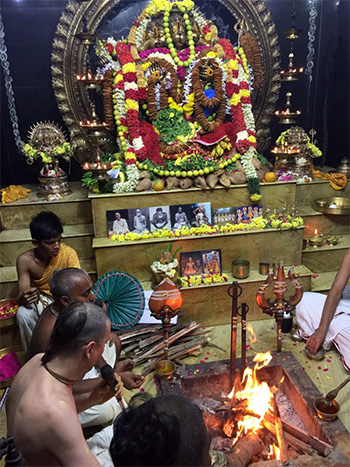Question: What are the hindu views on self injury and how do you monitor ethical behaviour?
Thank you for writing. In the Gita Lord Krishna states that penance and austerity is of three types, namely that done in the mode of goodness, that done in the mode of passion, and that done in the mode of ignorance. He explains the difference between these three as follows:
shraddhaya paraya taptam
tapas tat tri-vidham naraih
aphalakankshibhir yuktaih
sattvikam paricakshate
“This threefold austerity (of body, mind and words), practiced by men whose aim is not to benefit themselves materially but to please the Supreme, is of the nature of goodness.”
satkara-mana-pujartham
tapo dambhena caiva yat
kriyate tad iha proktam
rajasam calam adhruvam
“Those ostentatious penances and austerities which are performed in order to gain respect, honor and reverence are said to be in the mode of passion. They are neither stable nor permanent.”
mudha-grahenatmano yat
pidaya kriyate tapah
parasyotsadanartham va
tat tamasam udahritam
“Penance or austerity performed out of foolishness, with self-torture or to destroy or injure others, is said to be in the mode of ignorance.”
The destination of those acting in ignorance is described by Lord Krishna elsewhere in the Gita as follows:
jaghanya-guna-vritti-stha
adho gachanti tamasah
“Those situated in the abominable mode of ignorance go down to the hellish worlds.”
Ethical behaviour is guided by the scriptural texts known as “Dharma-shastras”. These are the law books of mankind, and they explain in detail the laws of karma (action and reaction). Ultimately dharma, or proper conduct, comes from the Lord:
dharman tu sakshat bhagavat pranitam
“Dharma is the direct instruction of the Supreme Personality of Godhead”.
Those who are true Hindus understand the intricate law of karma, and thus they do not wish to cause disturbance to any living entity, knowing the reactions will come back to themselves in this life and the next.
TEST-2





